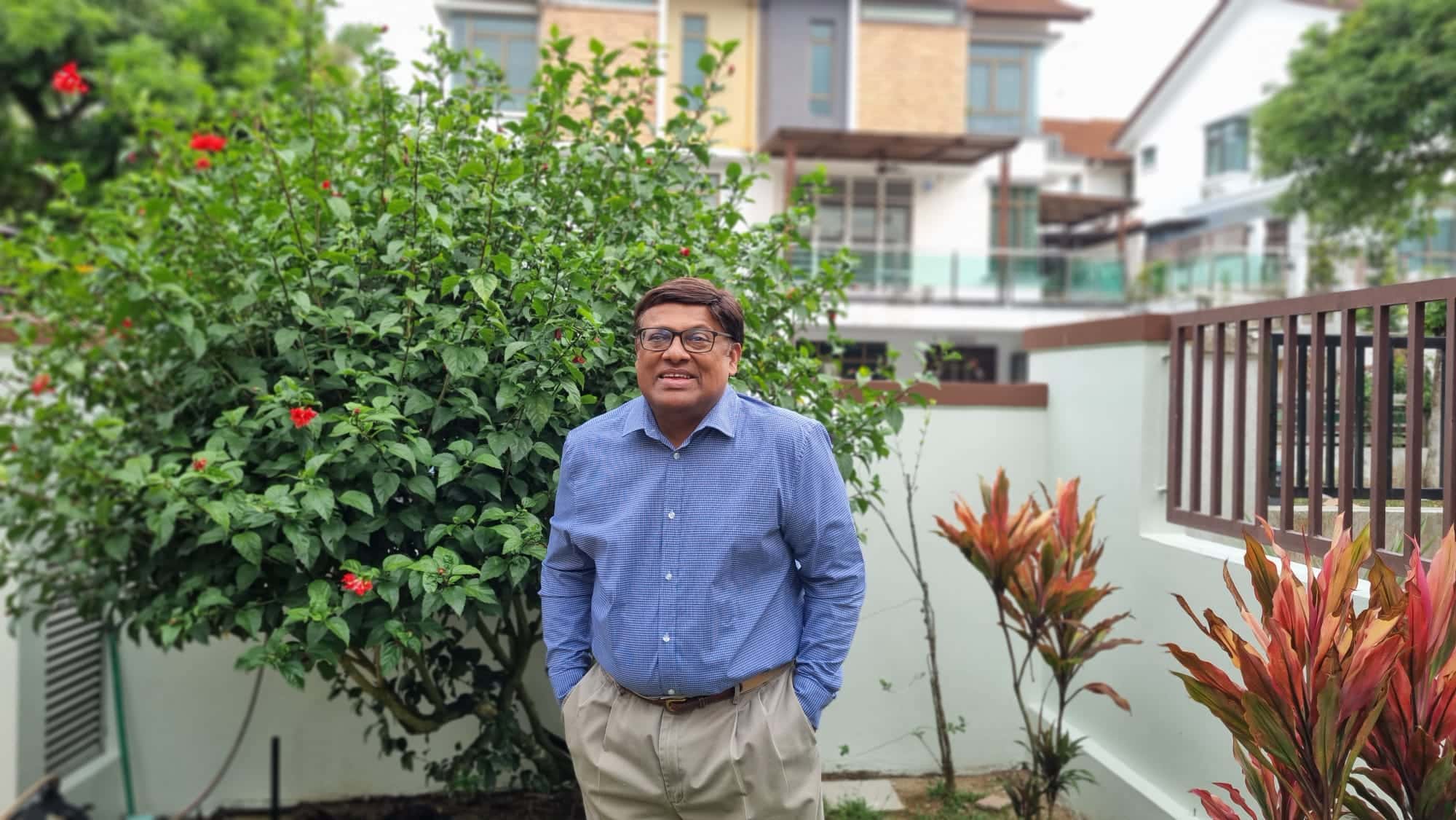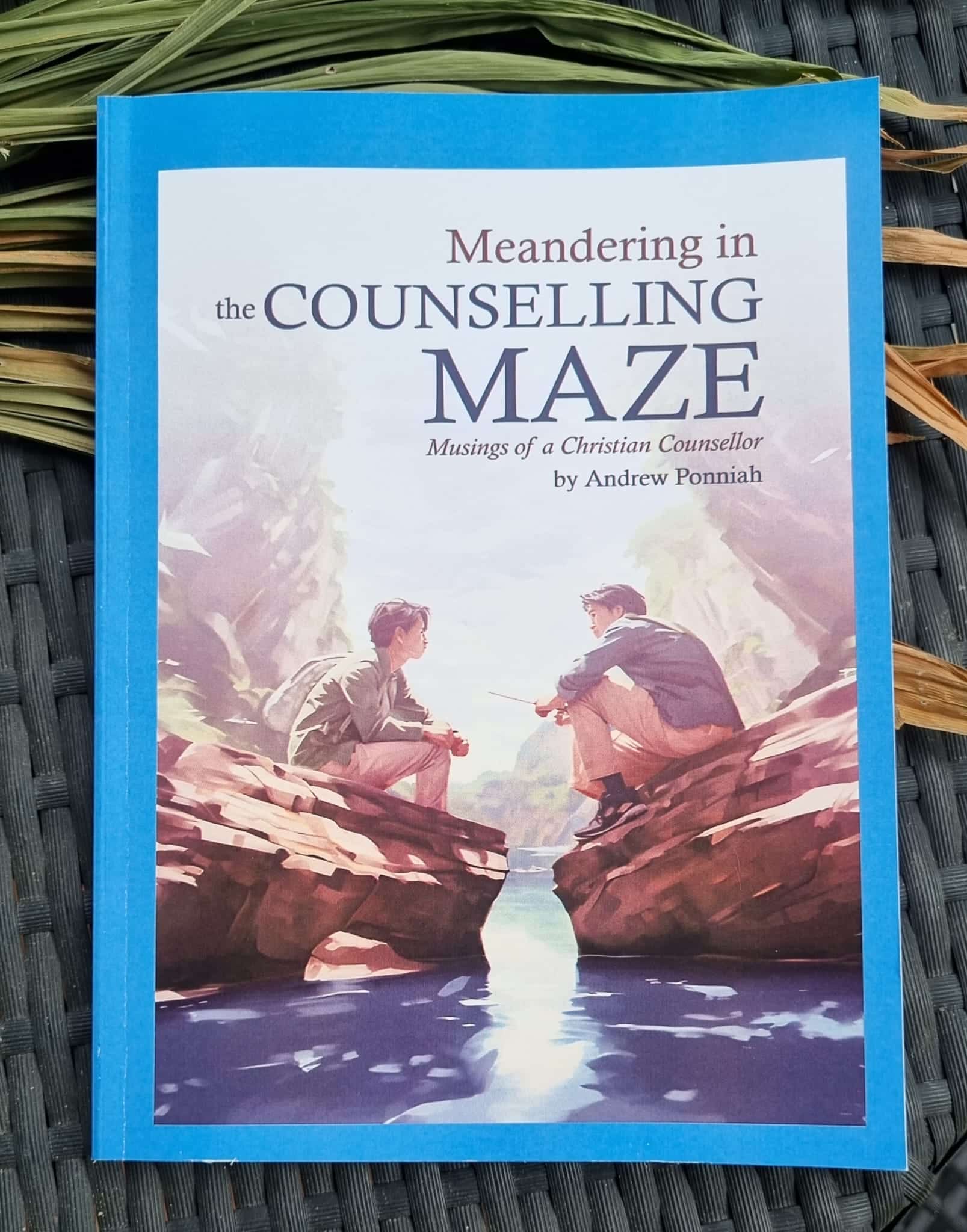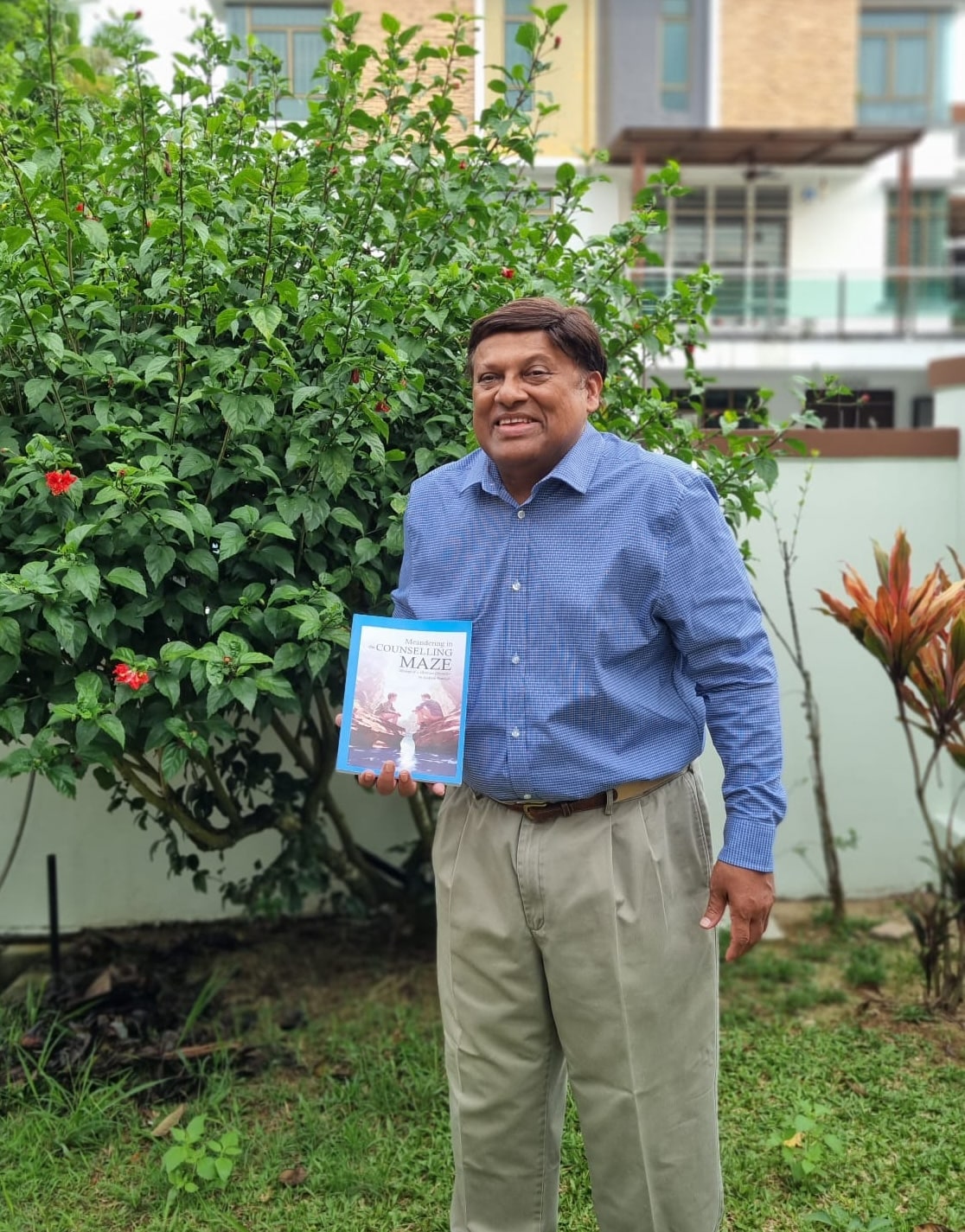“Counselling needs to be anchored on God, the Author of life”: His new book reframes Christian counselling
by Christine Leow // September 13, 2024, 5:40 pm

In the eight years as a counsellor, Andrew Ponniah realised there was a need to bring in Christian truths into Christian counselling. All photos courtesy of Andrew Ponniah.
Andrew Ponniah got into counselling late in life – in his 50s.
Before that, he had built a career in audit, served as an educator and set up a private international school under the Methodist Mission.
“Doesn’t the Church have enough precepts and enough to say about helping people get well psychologically?”
He was the COO of a private school in Singapore when he encountered students from different countries. Many faced problems.
“There was a real need for genuine counselling,” Andrew, now 66, tells Salt&Light.
He witnessed how one counsellor ended up enabling a student to live a lifestyle that was not morally right, all because he wanted to be empathetic.
“That taught me that counselling is a difficult art meant for those who are disciplined,” said Andrew.
“You need to have a centre (to anchor you).”
It was and remains his conviction that that “centre” has to be God. This conviction led him to write his book, Meandering in the Counselling Maze: Musings of a Christian Counsellor, which launches today.

The book is mix of Andrew’s experience as counsellor and Christian counselling principles anchored on Biblical truths.
“I found that counselling in church is too dependent on secular methods and thinking,” he said. “Doesn’t the Church have enough precepts and enough to say about helping people get well psychologically?
“The church should be above; secular theories below. I thought the book might restore that balance.”
The over-emphasis on self in secular counselling
For the last eight years, Andrew has been a counsellor with his church, St John’s-St Margaret’s Church (SJSM Church). The book is the culmination of his experience and observations.
“When I relied more on the Bible (in my counselling), I found the teaching and approach to be more holistic.”
In the book’s foreword, Vicar of SJSM Church, Rev Victor Teo, wrote: “He (Andrew) is seeking to humanise counselling. He has succeeded in coming up with more than just an informative book, but one packed with personal anecdotes, musings and practical insights.
“This book may be likened to a vibrant dance between practical observations and established theories, all grounded in the unshakeable conviction that life, no matter how entangled, finds meaning and purpose within the grand narrative of God’s love.”
Meandering in the Counselling Maze puts Christian precepts into secular counselling principles. Included is an examination of postmodernism and how that has affected our thinking, the rising sense of self, a portion on Christian Narrative Therapy and a look at Christian models of therapy and family therapy.
Andrew noted: “Secular counselling is dependent on feelings. It is very individualistic – based on your own viewpoints, figuring life out by yourself. It ignores the group.
“When I relied more on the Bible (in my counselling), I found the teaching and approach to be more holistic.”
“We are what we believe, to a large extent.”
He told of a teen he once counselled who was struggling with his sexual identity. Born out of wedlock, he “didn’t feel like he belonged” because his mother had remarried.
In his search to belong, he felt himself drawn to boys and wanted to eventually rent a place with his friends.
Andrew identified what the teen required in order to feel like he belonged: “He needed to be integrated into his family, to work on his relationship with his mother, father, siblings; and be more rooted.”
The counselling the boy had been through led him in a different direction than true belonging.
“Secular counselling was leading him to self,” Andrew explained. “Secular counselling starts with self and ends with self. You choose to be what you want to be just by looking at yourself.
“But what you believe in is important, rather than going by what you feel. We are what we believe, to a large extent. That prompted me to think a lot about how people are counselled.”
The need to centre on God
The conviction that counselling needs to be anchored on God deepened over time.
“[P]resent-day counselling is riddled with psychology … which starts with the self and ends with the self.
“Christian counselling, rightly understood, starts with God and sees us as mortals living in His world.

One of his counsellees was depressed. “She needed to hear that even when things go wrong, God is still with you,” said Andrew, pictured with his book which launches September 14, 2024.
“People, from my experience, are best counselled from a meta story that sees God as the Author of their lives,” writes Andrew in the prelude of the book.
That sweet spot between Christian advice of faith and prayer as answers to all of life’s ills and secular counselling that encourages a look to self for solutions is what Andrew wants.
He related the story of a young woman who was so depressed over a breakup that she needed psychiatric help.
“She was about 25. Him leaving her at that age meant a lot to her.
“For her, faith alone is not a plus. It was a minus because religion tells you that if God is for you, things will work out well. If things go against you, then you haven’t been a good person.
“She needed to hear that even when things go wrong, God is still with you.”
The importance of the group
Another aspect of the Christian faith in counselling is the value placed on the group.
“The people in the Bible had a proper sense of identity. They knew they belonged to a group, like the Israelites. If you lack this group that carries you along in life, you lack that comfort.”
“We were made to be part of a group.”
In a society where families are sometimes dysfunctional, the Christian community provides this group. In the counselling setting, Andrew advocates group therapy.
“Group therapy is where you have people who share similar hurts, someone who feels how you feel. There is affirmation and that can be very healing.
“Otherwise, you think you are the only one with the problem. Being in a group helps them realise they are not the only ones and it gets them away from thinking: ‘It’s all about me.’
“We were made to be part of a group. If you try to extract yourself to deal with your problems alone, you can’t do it.
“If you think of the Trinity, there is perfect unity in fellowship among the three of Them.”
Click here to purchase the e-book.
For those who prefer a hard copy, please send an email stating your name and address and mobile to: [email protected].
RELATED STORIES:
“God wants you to forgive and restore your family”: Esther Tzer Wong
“God is bigger than chilli padi!”: How the Unlabelled Run is transforming lives
We are an independent, non-profit organisation that relies on the generosity of our readers, such as yourself, to continue serving the kingdom. Every dollar donated goes directly back into our editorial coverage.
Would you consider partnering with us in our kingdom work by supporting us financially, either as a one-off donation, or a recurring pledge?
Support Salt&Light
